What is happiness? That’s the simple but nearly impossible question Sissela Bok tries to answer in her recent book Exploring Happiness: From Aristotle to Brain Science. As the title suggests, Bok, a philosopher and ethicist, takes a multidisciplinary approach in her attempt to explain just what happiness is and how we can go about achieving it.
Though a definitive answer remains elusive to both Bok and researchers alike, she draws on ideas from everything from philosophy to economics to psychology to offer a greater understanding of happiness and how we may go about getting more of it in our own lives. Though it does look at some research on what brings people happiness, the main service of Exploring Happiness is to synthesize a wide range of scientific and philosophical thought on the true meaning of happiness; it’s intellectually stimulating if not always practically focused.
Coincidentally, Bok’s husband, Derek Bok, a former president of Harvard, also came out with his own book on happiness earlier this year. While the pursuit of happiness is often regarded as an individual one, Derek Bok’s book, The Politics of Happiness: What Government Can Learn From The New Research on Happiness, contends that the pursuit of happiness can also be taken on by governments for the well-being for their citizens. He explores the ways by which education, labor, and health care policies (among others) can be informed by what researchers know about happiness. Bok also uses scientific research to dispel common notions of what makes us happy, giving evidence as to what actually fosters well-being.
In addition, Bok also highlights the social aspects of forgiveness, explaining how the proven routes to happiness involve other people. “The way to lasting happiness,” he writes “seems to include acts of civil engagement, kindness, and other behaviors ... beneficial to society.”
Unlike the Boks, Daniel Siegel and Judith Siegel are not related. But both have recent books that offer therapeutic ways we can renew ourselves and cultivate well-being.
In his book The Mindful Therapist, psychiatrist Daniel Siegel, the author of The Mindful Brain and Mindsight among other notable books, argues that the mindfulness and well-being of a therapist has a direct impact on the quality of treatment that they are able to deliver. Though the book’s chief purpose is to inform mental health professionals, Siegel’s advice is applicable to the lives of clinicians and patients alike.
The book explores some of the practical applications of mindfulness, a moment-by-moment awareness of our internal sensations and external circumstances, examining intersection of neuroscience and psychology in order to explain how mindfulness works and how it can be maintained. Siegel guides the reader down a path of healing and understanding that can help us not only live better lives but make stronger connections with others.
Judith Siegel’s Stop Overreacting: Effective Strategies for Calming Your Emotions describes how past traumas can lead us to overreact to current situations in our lives. Interwoven with real-life anecdotes, the book explains how to handle envy, jealousy, rejection, and criticism, among other difficult experiences. A helpful guide for those of us who have suffered any type of hurt in their past—which means all of us—Stop Overreacting offers a road map for transitioning from a world full of emotional distress to one of calmness, control, and well-being.
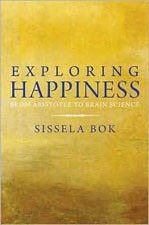
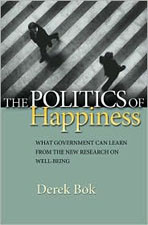

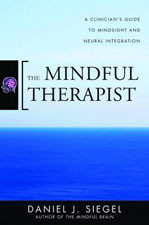
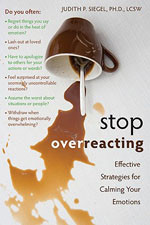
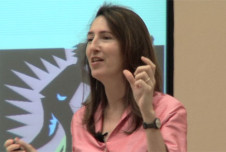
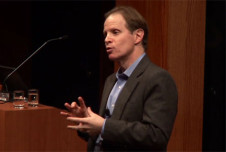

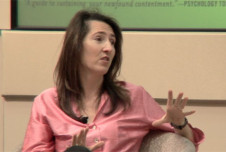

Comments
you should add to this book list, Gretchen Rubin’s
book “The Happiness Project”.
It’s really something!
Dolores
Dolores Gimenez Zapiola | 6:07 pm, December 21, 2010 | Link